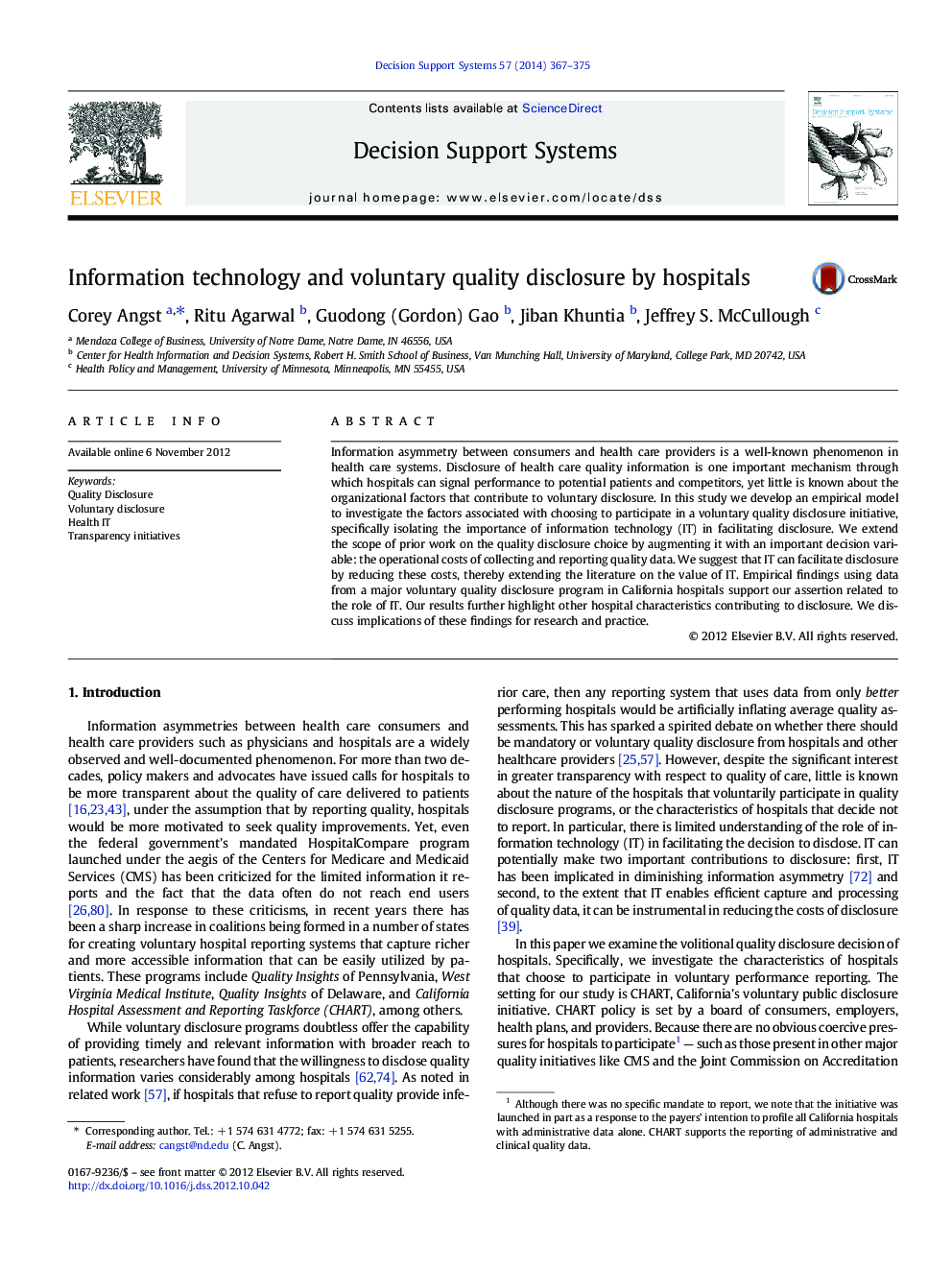| Article ID | Journal | Published Year | Pages | File Type |
|---|---|---|---|---|
| 552648 | Decision Support Systems | 2014 | 9 Pages |
Information asymmetry between consumers and health care providers is a well-known phenomenon in health care systems. Disclosure of health care quality information is one important mechanism through which hospitals can signal performance to potential patients and competitors, yet little is known about the organizational factors that contribute to voluntary disclosure. In this study we develop an empirical model to investigate the factors associated with choosing to participate in a voluntary quality disclosure initiative, specifically isolating the importance of information technology (IT) in facilitating disclosure. We extend the scope of prior work on the quality disclosure choice by augmenting it with an important decision variable: the operational costs of collecting and reporting quality data. We suggest that IT can facilitate disclosure by reducing these costs, thereby extending the literature on the value of IT. Empirical findings using data from a major voluntary quality disclosure program in California hospitals support our assertion related to the role of IT. Our results further highlight other hospital characteristics contributing to disclosure. We discuss implications of these findings for research and practice.
► Disclosure of health care quality is an important means to minimize information asymmetry. ► 66% of California hospitals voluntarily disclose their health care quality information. ► Disclosure hospitals have better quality, are larger, not publicly-held, and have better financial performance. ► Hospitals that disclose have more IT capacity and administrative IT applications. ► Academic status and location are not significantly different for hospitals that disclose quality.
